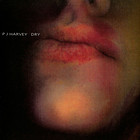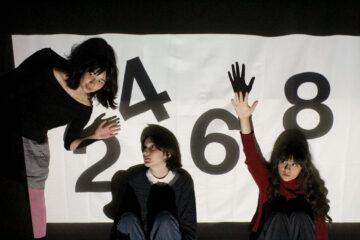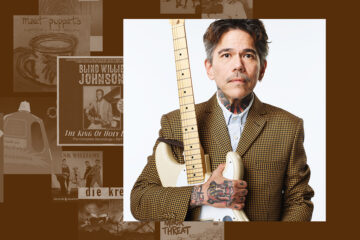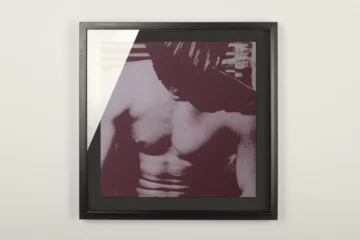In the year one after »Nevermind«, grunge was already looking pretty old to those who had stumbled upon the vibrant Seattle scene a few years earlier, with »Smells Like Teen Spirit« in heavy rotation on MTV. At least the young genre had started to smell funny pretty quickly, to speak with Frank Zappa. Some (Yo La Tengo, Chris Cacavas, Galaxie 500, for example) had already moved away from the overbidding gestures of the Sub-Pop bands (louder, sicker, more fucked up), had set out in the direction of »Quiet is the new loud« (where Kings of Convenience then picked up the counter-trend of the time as the »next big thing« ten years later). In short: Paradigm shifting air was blowing through the Alternative States of Indie Rock at the beginning of 1992.
Then, almost exactly 30 years ago, in March and without warning to most, came »Dry«. On it, a voice reared its head in which seduction and hurt, lust and despair, courage and anger fell into one in a way that was as shocking as it was fascinating. Polly Jean Harvey, daughter of a quarry owner and his folk-rock-loving wife, had just gotten over her first relationship – on »Dry« she doesn’t simply review all the phases of disappointed love, but suffers through them anew in all the intensity of their body-consuming, shredding torment from within. The mood of the record is 110 percent blues, the music a form of rock that had the guts to counter the slick, showy gesture of the grunge bands with something, that has been covered with the attribute »raw« in every review since then: Eleven songs straight from the quarry of adolescence, in sum the war diary of a foot soldier in the army of lovers. Unexpectedly, »Dry« hit the back of the head, a shrapnel bullet in the battle of the sexes. What then lay before you turned out to be a colossal instant monument of bloodcurdling urgency. What has happened? Had Captain Beefheart and Patti Smith managed to hide a daughter from the public?
Some had already caught wind of a woman in white who was haunting the nightly formats of the music television channels: »Dress«, the first single by PJ Harvey, had already been released in December of the previous year on the indie label Too Pure and was a song like none heard in a long time. Instead of staging her self-empowerment in the same phallocentric rocker gestures that her male counterparts have been using since time immemorial like the Riot Grrrls of the U.S. Pacific Coast, Polly Jean Harvey, born in Bridport in southwest England in 1969 and raised in rural Dorset, ripped open the curtain on the emotional life of a woman who wants to impress a man: »Must be a way that I can dress to please him«, she murmurs in a voice full of seduction and hurt, of lust and despair, of courage and anger, literally altogether falling into one; an imploding vamp who sums up the impositions of sex life with razor-sharp observation and peaks like this: »It’s hard to walk in the dress, it’s not easy / I’m spilling over like a heavily loaded fruit tree«. The manic refrain obsessively chants the motif: »If you put it on«.
»Sheela-Na-Gig«, the second single from »Dry«, also deals with toxicity in a relationship between a man and a woman. The female protagonist first tells him about her merits and then lays them at his feet (sarcastic self-irony is also part of Harvey’s poetological program here). The rejection follows promptly, as a refrain in the form of an ass-kicking: »Sheela-na-gig / You exhibitionist«, the disgusted guy draws on grotesque medieval depictions of women with oversized vaginas for comparison, followed by the nasty bridge: »Put money in your idle hole«. Speech act theory galore: »He said ‘wash your breasts, I don’t want to be unclean’«. Yet she had tried everything to keep him: »Oh, my lover / Don’t you know it’s all right? / You can love her / And you can love me at the same time«, are the first lines on »Dry«. With lyrics that are truly lyricism, Harvey left no doubt from the start that a real song poet is at work here (a later liaison with Nick Cave seems almost inevitable; almost as much as the fact that it did not last). »Happy and Bleeding« seems to cross the experience of deflowering with that of menstruation, condensed in the image of a »fig fruit«, »long overdue« and picked »too soon« simultaneously, withering from »inside out«.
Musically, too, PJ Harvey seemed rather anachronistic compared to the grunge bands; »relatives in distance« is perhaps the best way to put it. But Harvey’s synthesis of rumbling, pounding noise and outrageously catchy hooks, her power chords that bury listeners beneath them instead of soaring to anthemic heights, plus the tremendously muscular, gristly bass of Steven Vaughan, similar to what could be heard from DC bands like Fugazi a few years earlier, and the massive drums of Rob Ellis resulted in a very unique mixture, which in terms of dynamics and instrumentation – in addition to the standard rock set-up, strings can be heard here from time to time, Harvey herself on the violin; the deconstructive string arrangement of »Plants and Rags« is simply breathtaking – refers more to The Pixies than to Seattle. Sometimes, however, for example in the frenzied prayer »O Stella«, they are just the BETTER Nirvana for a moment.
With »Rid Of Me« another milestone was released a year later in the same line-up (recorded by Steve Albini; »Dry«, the title track of the debut, was only included here), with »To Bring You My Love« in 1995 a masterpiece produced by Flood (Depeche Mode, U2, Nine Inch Nails) and John Parish (with whom she already played before the trio times with Automatic Dlamini and still often works together today), for which she has tuned her contralto timbre one register lower again. Since then, Polly Jean Harvey has become the author of a brilliant discography that does not know a single weak record. Not too many can claim that. This exceptional artist’s biography began as strong as it was disturbing with »Dry«: Few debuts in the history of alternative music have left a more lasting impression.










